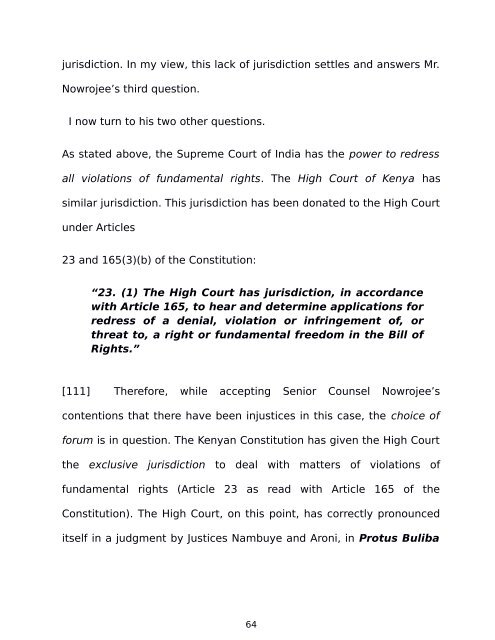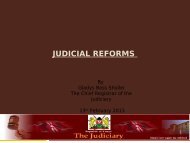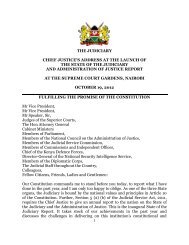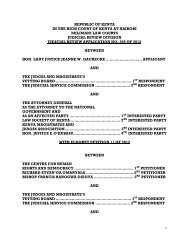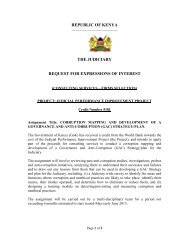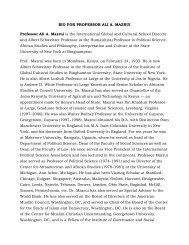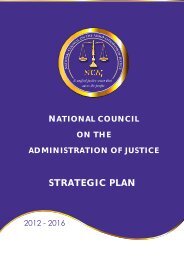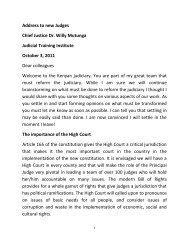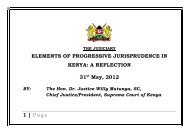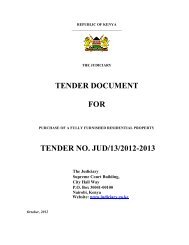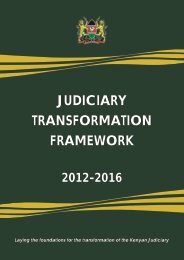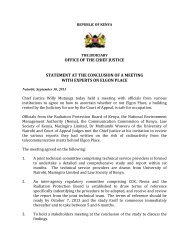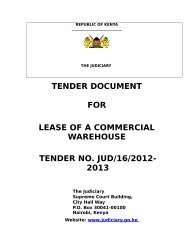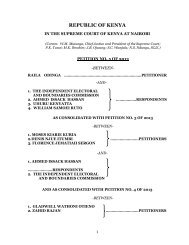REPUBLIC OF KENYA - The Judiciary
REPUBLIC OF KENYA - The Judiciary
REPUBLIC OF KENYA - The Judiciary
You also want an ePaper? Increase the reach of your titles
YUMPU automatically turns print PDFs into web optimized ePapers that Google loves.
jurisdiction. In my view, this lack of jurisdiction settles and answers Mr.<br />
Nowrojee’s third question.<br />
I now turn to his two other questions.<br />
As stated above, the Supreme Court of India has the power to redress<br />
all violations of fundamental rights. <strong>The</strong> High Court of Kenya has<br />
similar jurisdiction. This jurisdiction has been donated to the High Court<br />
under Articles<br />
23 and 165(3)(b) of the Constitution:<br />
“23. (1) <strong>The</strong> High Court has jurisdiction, in accordance<br />
with Article 165, to hear and determine applications for<br />
redress of a denial, violation or infringement of, or<br />
threat to, a right or fundamental freedom in the Bill of<br />
Rights.”<br />
[111] <strong>The</strong>refore, while accepting Senior Counsel Nowrojee’s<br />
contentions that there have been injustices in this case, the choice of<br />
forum is in question. <strong>The</strong> Kenyan Constitution has given the High Court<br />
the exclusive jurisdiction to deal with matters of violations of<br />
fundamental rights (Article 23 as read with Article 165 of the<br />
Constitution). <strong>The</strong> High Court, on this point, has correctly pronounced<br />
itself in a judgment by Justices Nambuye and Aroni, in Protus Buliba<br />
64


